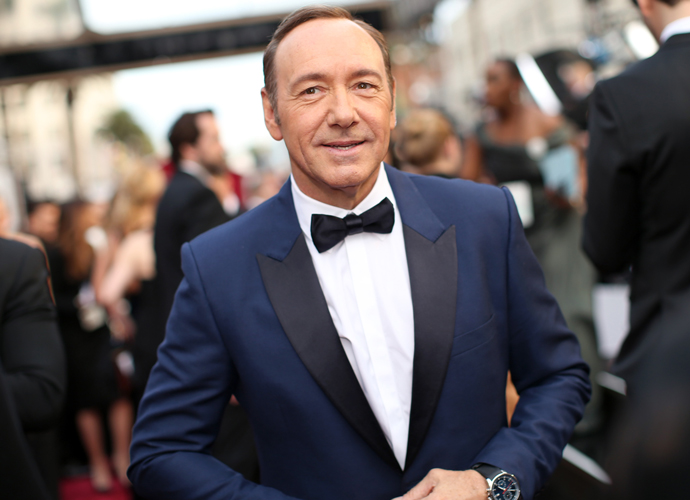‘House Of Cards’ Season 5 Review Roundup: Series Growing Tired In Comparison To Real Trump Drama

3.5/5
Netflix’s House of Cards is back for it’s fifth season on the streaming service, and critics see the plots growing tired. This season sees the country teetering on the brink of war, with fear of terrorist attacks at every corner. Many see a lot of similarities between Kevin Spacey‘s Frank Underwood’s administration and Donald Trump‘s. In fact, many reviewers seem to think the show has lost its edge due to the Trump presidency. The show was always about a fictional president who craved power more than politics, and it seems that type of presidency is no longer fictional.
Fear is a driving factor in season five, as it has been throughout the entire series run, but critics think the fear is beginning to grow tiring this time around. The show has, however, attempted a few new tactics, including playing with cold openings and time jumps to keep viewers interested.
HOUSE OF CARDS REVIEW ROUNDUP
“While the first few episodes seek to pick up the pace, the storylines soon become turgid. There’s a sense we’ve been here before: the Underwoods scheming, their opponents faltering, the American people conspicuous by their absence as the White House descends into a near-dictatorship. To an extent, it feels like House of Cards only has one plot and simply repeats it with a slightly different cast of supporting characters. And while in earlier seasons the unending evil was fun, here it just gets claustrophobic.”
–James Temperton, Wired
“Season five of House of Cards is a paranoid fantasy with dollops of Veep-like farce. One scene plays like a twisted hat tip to Game of Thrones, and there’s another where a man screws his lover on top of the podium in the White House briefing room. The cold openings are genuinely surprising: One is so tonally bizarre that for a second I assumed I’d clicked on the wrong series by mistake, and others zigzag so playfully from whatever the last episode led me to expect that I laughed out loud in wary admiration. There are unexpected time jumps, surreal interludes, and moments of tenderness and insecurity (mostly, though not always, between Frank and Claire). The subplots of key supporting characters — Michael Kelly’s Doug Stamper, Kinnaman’s ’roided-up Mr. Smith of a governor, and Boris McGiver’s alternately cocky and morose Washington Herald editor Tom Hammerschmidt — connect with Frank and Claire’s arcs, not just through the crackpot intricacies of the main story line, but through their shared sense of helplessness in the face of the dark forces that Frank has unleashed. I’m not saying that House of Cards has become great popular art all of a sudden — only that it was always a fun show, and that in its fifth season it’s so addictive, and knows itself and its audience so well, that I can’t in good conscience label it a guilty pleasure anymore. It’s a self-actualized spider realizing for the first time that it can hang upside down from the ceiling and savoring the change in perspective. So many shoulders to fall on, so little time.”
–Matt Zoller Seitz, Vulture
“Cards has also never been particularly astute in its portrayal of the media, and that’s going to feel like more of an issue in a moment when the press’s role in politics is more pronounced and more contested than it arguably has ever been. It’s 2016 in the show and the main source of action is Charlie Rose? It’s the Internet era and viewers get no sense of whether the American people are buying the conspiracy theories about their president? Another Cards blindspot has been the actual demos in democracy—the people who aren’t politicians. The average American’s ability to be manipulated by plugged-in mandarins is taken for granted here. Which, of course, is exactly what our world’s plugged-in mandarins took for granted before November of last year… enjoying the show means suspending disbelief about the Underwoods’ nefarious calculations. Claire didn’t really need to toy with the terrorist’s mother, and Frank didn’t really need to toy with the terrorist. But these people are motivated by power. What could be more of a power rush than looking in the face of someone whose life is at your disposal?”
–Spencer Kornhaber, The Atlantic
RELATED ARTICLES
Get the most-revealing celebrity conversations with the uInterview podcast!







Leave a comment